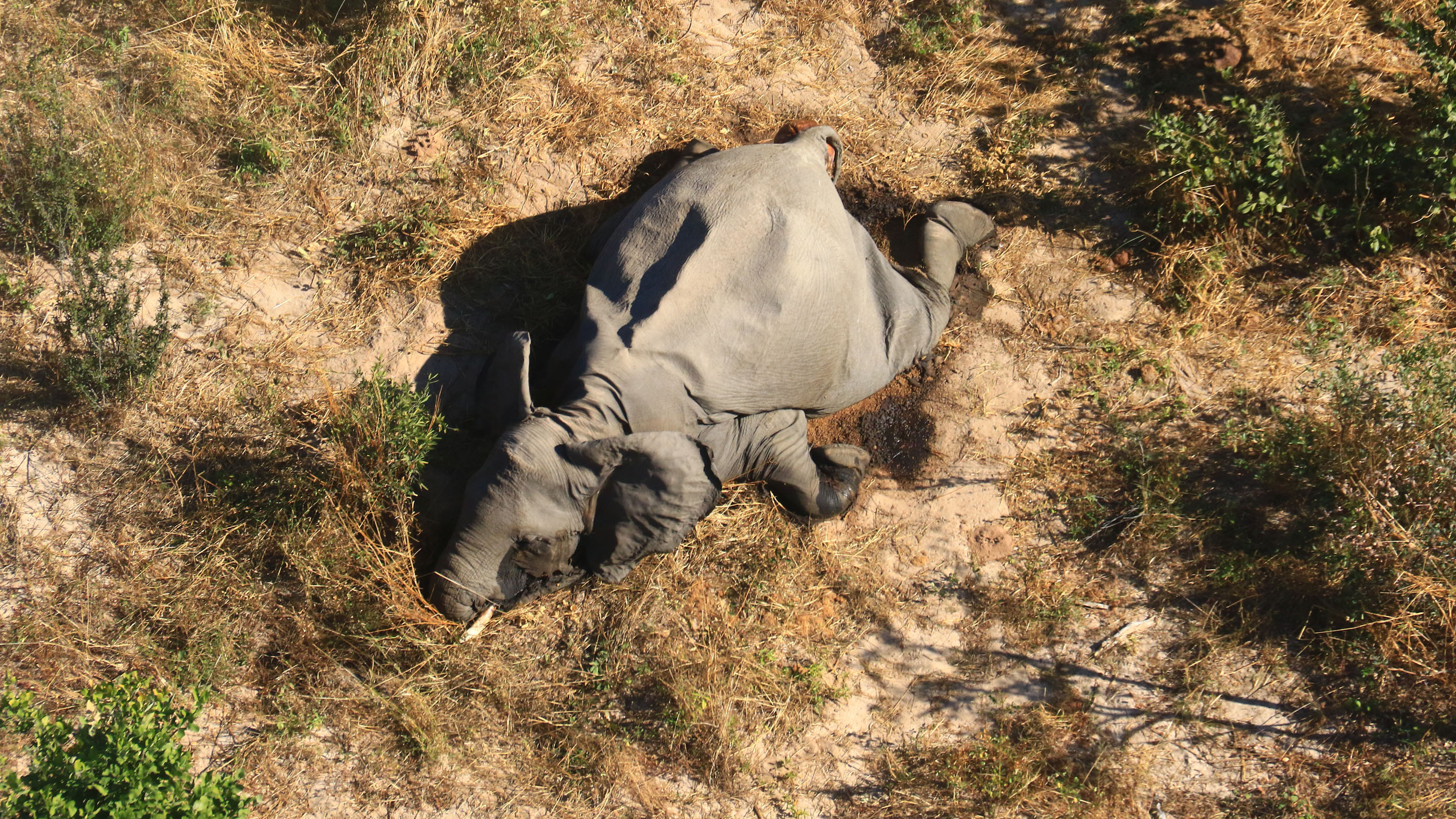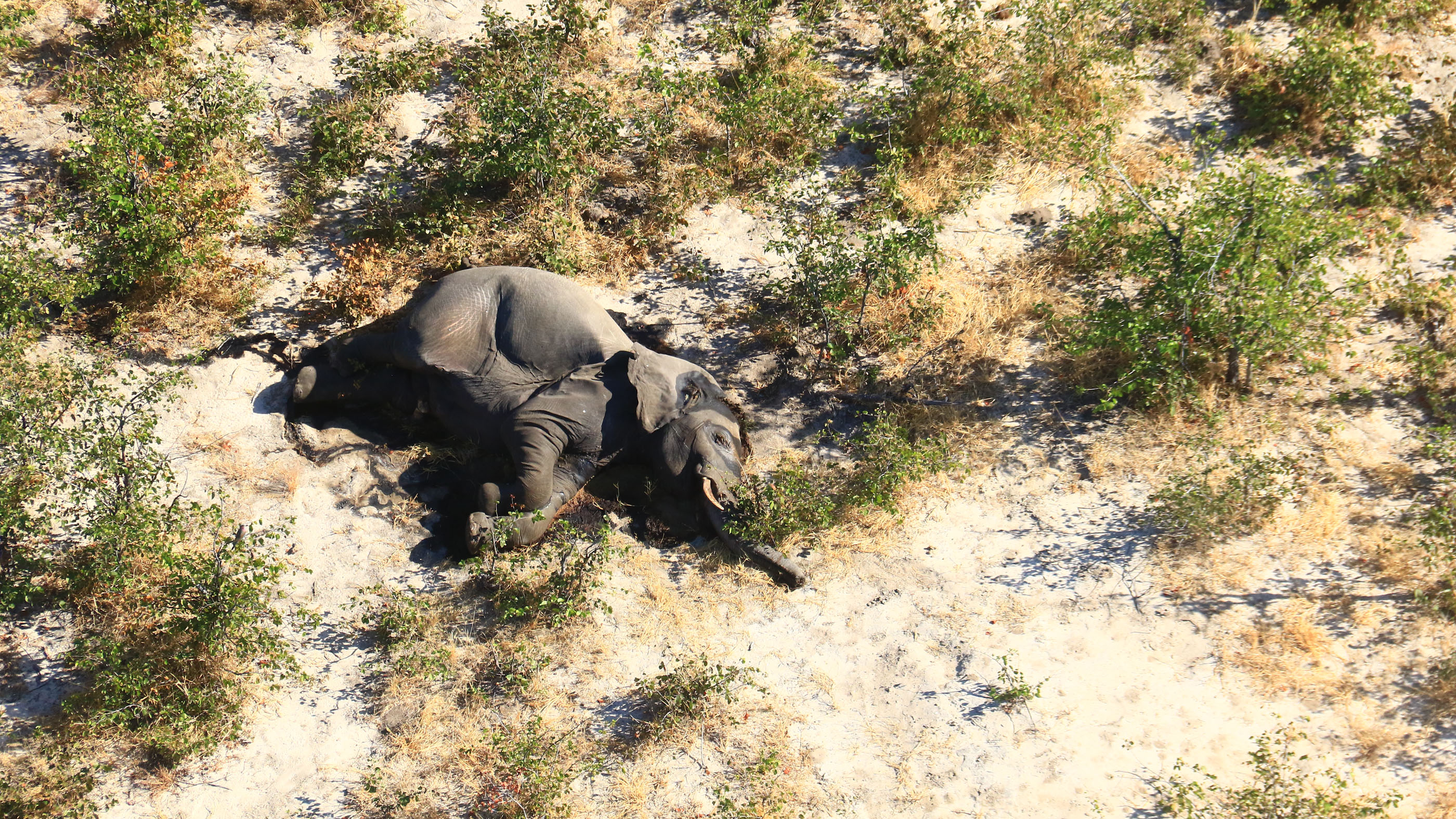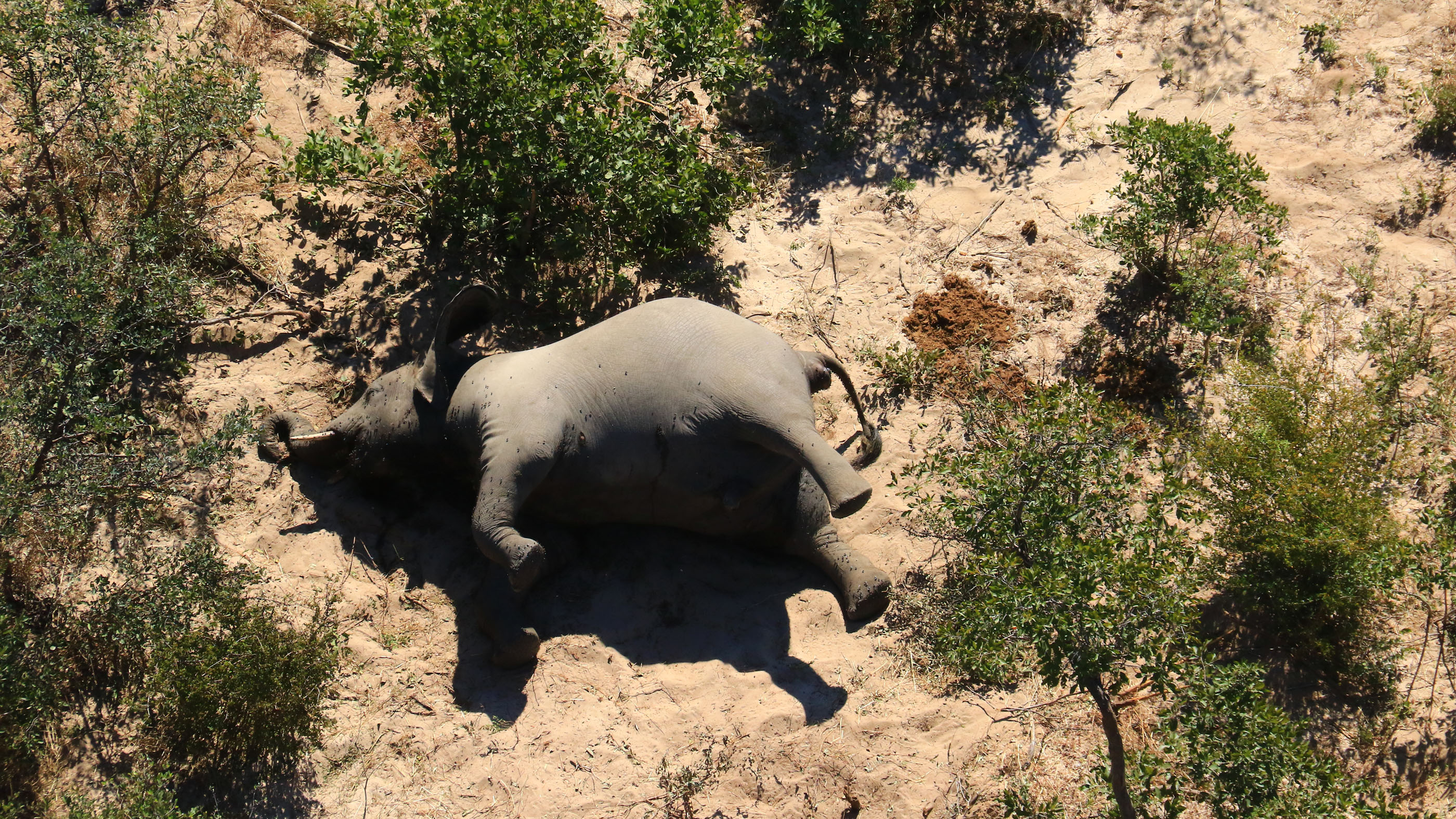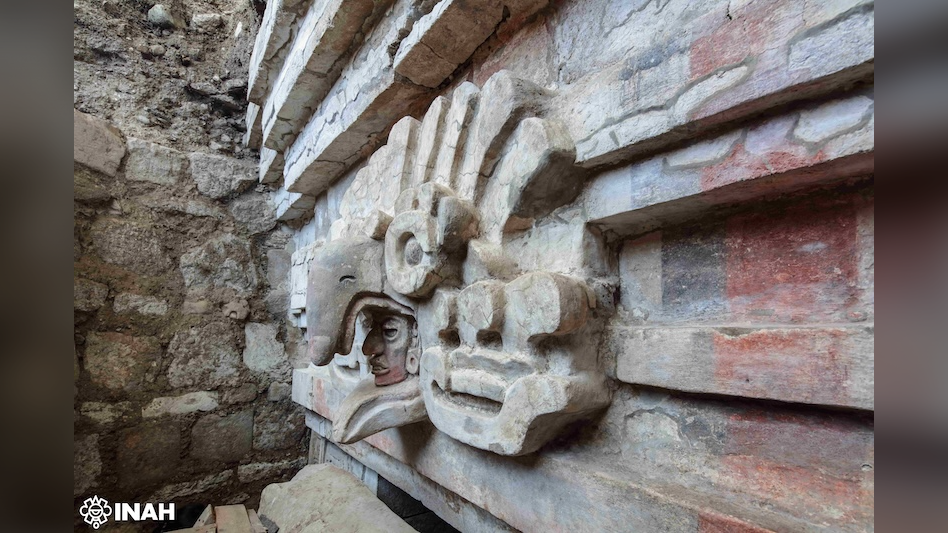350 elephants drop dead in Botswana, some walking in circles before doing face-plants
No one knows why.

More than 350 elephants in Botswana have mysteriously died since May, in a phenomenon that some scientists have dubbed a "conservation disaster," and one that has evaded explanation.
The elephants — which died in the swampy Okavango Delta — still had their tusks intact, suggesting that ivory poaching hadn't driven the deaths, The Guardian reported. A flight over the delta in May by researchers with Elephants Without Borders, a wildlife conservation organization, first spotted 169 carcasses; that number jumped to 356 in June, when the conservationists took another flight over the area.
Botswana's Ministry of Environment, Natural Resources Conservation, and Tourism has verified 275 of those elephant carcasses, according to a statement from the African Wildlife Foundation.
Related: Elephant images: The biggest beasts on land
The mass die-off could be explained by either a poison or some as-yet unknown pathogen, according to The Guardian. Already, officials have ruled out anthrax, the carcasses tested negative for that bacterium, said Scott Schlossberg, a research consultant for Elephants Without Borders.
The bacterium that causes anthrax disease, called Bacillus anthracis, occurs naturally in soils, where it can stay inactive as spores for decades, scientists reported in 2019 in the journal Proceedings of the Royal Society B. Grazing animals can ingest anthrax-tainted soils along with plants or while drinking from watering holes.
This isn't the first elephant die-off in the region; more than 100 elephants died over a two-month period in the fall of 2019 in Botswana's Chobe National Park, primarily driven by drought. Some of those deaths may have been due to anthrax, as the elephants would have ingested soil (possibly contaminated with anthrax spores) while grazing around dried-up watering holes and across wilted grasslands, the AFP reported at the time.
Get the world’s most fascinating discoveries delivered straight to your inbox.

What's behind the recent deaths?
Local sources told The Guardian that 70% of the elephant carcasses — which span all ages — have been found around watering holes, so perhaps the culprit is somehow linked to watering holes, The Guardian reported. Also, locals have reported that some of the elephants were walking in circles before their deaths, suggesting a neurological issue.
"If you look at the carcasses, some of them have fallen straight on their face, indicating they died very quickly," Niall McCann, director of conservation at the U.K.-based conservation organization National Park Rescue, told The Guardian. "Others are obviously dying more slowly, like the ones that are wandering around. So it's very difficult to say what this toxin is."
Related: In photos: The most surprising elephant relatives on Earth
Another idea, though unlikely, is cyanide, which poachers often use to poison elephants. However, in the case of cyanide poisoning, the elephants are generally clustered in one area where the poison was deployed, and other animals scavenging on their carcasses also show up dead, The New York Times reported. This hasn't been the case in Botswana.
Rather than foul play, the elephants might have died from a natural culprit, said Chris Thouless, the head of research at the conservation organization Save the Elephants, which is based in Kenya, The New York Times reported. Thouless suggested the viral disease encephalomyocarditis, which is transmitted by rodents, could be to blame. The disease causes neurological impairment and is known to have killed 60 elephants in South Africa's Kruger National Park in the mid-1990s, according to a report published in 1995 in the Onderstepoort Journal of Veterinary Research.
He added that Botswana recently emerged from a drought, which can leave elephants stressed and more susceptible to diseases.
Conservation disaster?
Botswana supports a population of about 130,000 elephants, more than in any other country in Africa, according to the African Wildlife Foundation. The delta where these carcasses were found is home to about 15,000 of those elephants, according to The Guardian.
The loss of hundreds of elephants (a number that could climb if the culprit isn't discovered and addressed soon) may impact the country's ecotourism, which relies on elephants and other wildlife, and contributes 10% to 12% of Botswana's GDP, The Guardian reported.
"You see elephants as assets of the country. They are the diamonds wandering around the Okavango delta," said McCann, as reported by The Guardian. "It's a conservation disaster — it speaks of a country that is failing to protect its most valuable resource."
Thouless disagrees with the idea that these deaths represent a "conservation disaster," pointing to the fact that the deaths represent such a small percentage of the delta's total population.
However, that number could climb if the cause isn't determined and mitigated. As for whether or not the mortality is continuing, the last time we flew over the area in mid-June, we were still finding very fresh carcasses from elephants that had died a few days to a few weeks previously," Schlossberg told Live Science. "So, the mortality appears to have been continuing into June. We would not be surprised if elephants were still dying, but we would need to do another survey to confirm this."

Slow response?
Experts contacted by The Guardian were concerned by how slowly the official investigation of the deaths is proceeding. The Botswana government has yet to get, or release, results from lab tests on the carcasses and the surrounding environment.
Related: Incredible photos capture last glimpse of long-tusked 'elephant queen'
"Toxicological tests of elephant remains, water and soil in the areas where the remains have been found are currently [being] undertaken by the National Veterinary Laboratory," Cyril Taolo, the acting director of Botswana's Department of Wildlife and National Parks, told Live Science in an email.
Taolo added, "We are not in a position [to] divulge details of the investigation that is ongoing and we do not wish to speculate on the cause of the mortalities."
Although some conservationists have suggested the government is not taking these deaths seriously, Taolo said otherwise. The die-off is "taken with all the due seriousness that it deserves. That is why resources have been expended to establish the extent of the mortalities and the cause."
Originally published on Live Science.
Jeanna Bryner is managing editor of Scientific American. Previously she was editor in chief of Live Science and, prior to that, an editor at Scholastic's Science World magazine. Bryner has an English degree from Salisbury University, a master's degree in biogeochemistry and environmental sciences from the University of Maryland and a graduate science journalism degree from New York University. She has worked as a biologist in Florida, where she monitored wetlands and did field surveys for endangered species, including the gorgeous Florida Scrub Jay. She also received an ocean sciences journalism fellowship from the Woods Hole Oceanographic Institution. She is a firm believer that science is for everyone and that just about everything can be viewed through the lens of science.
 Live Science Plus
Live Science Plus





